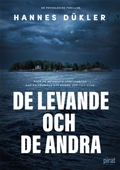
Lägg till önskelistan
In Rommel's Backyard e-bok
Pris
115 kr
Alastair Timpson belonged to that generation of young men who were propelled straight from public school into the maelstrom of the Second World War. Inured as they had become from quite an early age to discomfort, discipline, indifferent food and absence from home, many appeared to make an effortless transition from peace of their upbringing to the dangers of front line soldering.
Thompson had the good fortune to find this way, via the Scots Guards, into the Long Range Desert Group, the most...
E-Bok
115 kr
Pris
Förlag
Pen and Sword
Utgiven
23 Februari 2021
Längd
196 sidor
Genrer
Historia & Arkeologi, Biografier & Memoarer, Fackböcker
Språk
English
Format
epub
Kopieringsskydd
Vattenmärkt
ISBN
9781473817777
Alastair Timpson belonged to that generation of young men who were propelled straight from public school into the maelstrom of the Second World War. Inured as they had become from quite an early age to discomfort, discipline, indifferent food and absence from home, many appeared to make an effortless transition from peace of their upbringing to the dangers of front line soldering.
Thompson had the good fortune to find this way, via the Scots Guards, into the Long Range Desert Group, the most romantic of special force units. In Rommel’s Backyard describes the threefold roles of the LRDG, all of which involved daring, dash and incredible feats of endurance and navigation deep behind enemy lines. They were the eyes and ears of the Eighth Army, road-watching and reporting enemy movement; they destroyed enemy aircraft, supply dumps and vehicles; and transported other special forces and agents to their objectives.
Fortunately, Alastair Timpson kept a meticulous record of all his activities with the LRDG, although he never saw this as being of interest to more than his family. However, after his death, his son realised its wider appeal and offered it for publication. Although In Rommel’s Backyard is a very personal account it epitomises the spirit of a campaign which involved many thousands of young men.
In a calm, often detached way - his modesty is noteworthy - the author gives an account of his and his colleagues’ war behind enemy lines which will appeal not only to historians of the period but to all those who enjoy a real-life adventure story of epic encounters fought, and won, against the odds.




